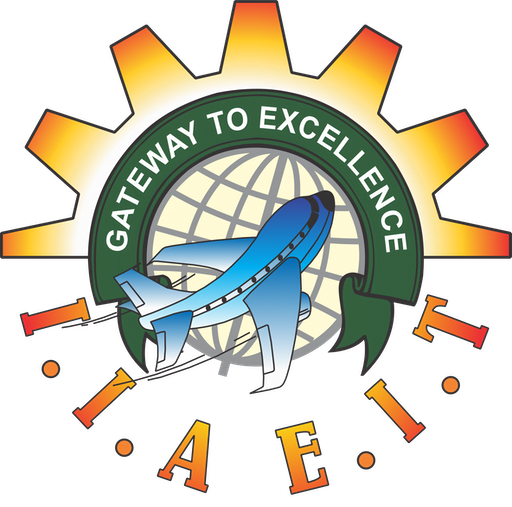Introduction
Engineering has been the most demanding field over the past few years. With the rapid advancement and technology and global challenges, such as climate change, space exploration, and automation, reshaping engineering disciplines is most valuable. As we approach 2030, several engineering fields are growing significantly and will be in high demand in the future. Computer science, Aerospace engineering, renewable energy and avionics engineering are among the most promising key areas. Additionally, robotics, Aerospace, and civil infrastructure are also expected to be in demand. Understanding these trends enables students and professionals to align their education and careers with fields that offer strong demand and future growth opportunities. Let’s explore the top engineering fields of the future and what makes them essential for tomorrow’s world.
Best engineering courses for future jobs
1. Artificial Intelligence & Machine Learning Engineering
Fields like AI and ML are central to the future, driving automation, data insights, and robotics. Roles include AI engineer, ML developer, and data scientist. Growth is expected to continue through 2030, with strong salary potential (₹8–10 LPA for freshers in India, rising to up to ₹25 LPA with experience).
2. Data & Software Engineering
Software and data engineering underpin nearly every digital system, from cloud services to cybersecurity. They work hand in hand with AI, forming the backbone of the digital age.
3. Aerospace & Space Technology Engineering
Aerospace & Space Technology Engineering is an exciting and future-ready field. It covers the design, testing, and maintenance of aircraft, rockets, satellites, drones, and spacecraft.
With the global space industry growing rapidly, there is a substantial demand for skilled engineers in organisations such as ISRO, DRDO, HAL, and private space companies. Students learn aerodynamics, propulsion, flight mechanics, and advanced space systems — all needed for cutting-edge projects in aviation and space.
4. Cybersecurity Engineering
As data systems and space technologies go online, cybersecurity engineers will be essential to protect them. Demand is expected to surge across sectors, including space, healthcare, and finance.
5. Avionics Engineering
Avionics Engineering deals with the electronic systems that keep aircraft and spacecraft safe, efficient, and innovative. This includes navigation, flight control, radar, sensors, and communication systems.
With the aviation and defence industries adopting AI and automation, there is a rising demand for avionics engineers who can design, test, and maintain these complex systems. Students in this field learn embedded systems, signal processing, control systems, and advanced electronics.
Spotlight: Aerospace & Space Tech Careers
- Fast-growing industry: Satellite constellations, reusable rockets, and in-space manufacturing—like the UK’s ForgeStar-1 project—are fueling growth.
- Skill demands: Embedded systems coding (C++, Python, Rust), AI/ML, RF systems, systems integration, additive manufacturing, and materials science are key.
- Career outlook: Steady 6% job growth with thousands of yearly opportunities in design, manufacturing, and research.
Choosing the Right Engineering Field
- Review global & industry trends (AI, space, energy, health).
- Identify high-growth roles like AI engineer, aerospace systems integrator, and renewable energy specialist.
- Combine technical majors with programming and systems thinking—the value is higher at interdisciplinary intersections.
- Gain hands-on experience through internships, research, or online projects to build strong portfolios.
Why Choose IIAEIT for Engineering?
1. Specialized Programs in Aerospace and Avionics
IIAEIT offers B.Tech and M.Tech programs in Aerospace Engineering, Aeronautical Engineering, and Avionics Engineering. These programs are designed to equip students with the skills needed to design, develop, and maintain aircraft, spacecraft, and related systems.
2. State-of-the-Art Infrastructure
The institute boasts advanced laboratories, extensive libraries, and innovative learning spaces that foster a culture of research and innovation. This infrastructure supports hands-on learning and practical experience in aerospace technologies.
3. Accredited and Recognized Programs
IIAEIT’s engineering courses are accredited and delivered in collaboration with the Department of Space Engineering at Ajeenkya DY Patil University. This partnership ensures academic rigour and industry relevance in the curriculum.
4. Strong Industry Connections
IIAEIT maintains collaborations with leading aerospace organisations and companies, providing students with opportunities for internships, projects, and placements. Top recruiters include Indian Airlines, Adani Defence & Aerospace, Airbus, Indigo, and Vistara.
5. Comprehensive Course Offerings
The institute offers a range of programs, including B.Tech, M.Tech, and integrated B.Tech + M.Tech courses. Admission is based on entrance exams such as SPACE CET, JEE Main, and MHT CET, catering to a diverse student population.
Conclusion
The field of engineering is poised for growth in the future. The expansion of the space industry and technological advancements in areas such as sustainable aviation and hypersonic technologies are expected to drive growth, resulting in a high demand for skilled professionals, particularly with advanced knowledge of AI, space, energy, and automation. Aerospace engineering is expected to offer numerous job opportunities in both the public and private sectors. The aerospace engineering market is expected to reach USD 312.55 billion by 2030. Several engineering fields are expected to be in high demand, including artificial intelligence and machine learning, cybersecurity, renewable energy, biomedical engineering, and robotics and automation. Choosing the right path, tailored to your area of interest and expertise, will lead you to a successful career in this rapidly evolving global landscape.


